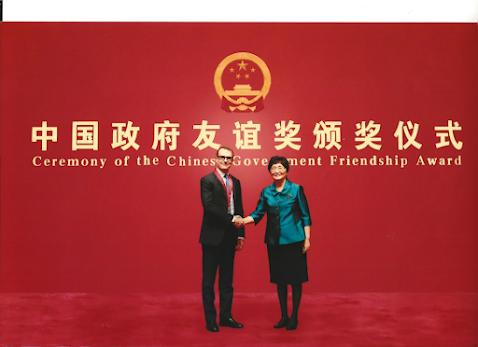Safeguarding the Yangtze: A Decade of Fishing Bans to Restore Biodiversity
As the most vital habitat for freshwater organisms' survival and reproduction in China, the Yangtze River has suffered from ecological damage due to overfishing, resulting in a decrease in aquatic species and biomass. As early as 2002, in order to protect the fishery resources and ecological environment of the Yangtze River Basin, China formulated and implemented the initial Yangtze River fishing ban period system, implementing fishing moratorium policies in different areas of the Yangtze River Basin during different time periods. With the initial fishing ban period system and fishing moratorium policies effectively alleviating the decline of fishery resources in the Yangtze River Basin and improving the ecological environment of the implementation areas, the ten-year fishing ban in key waters of the Yangtze River Basin was comprehensively launched on January 1, 2021.
Recently, the General Office of the State Council publicly released the "Opinions on Firmly Advancing the Ten-Year Fishing Ban in the Yangtze River" (hereinafter referred to as the "Opinions"). The "Opinions" affirmed the achievements made in the past three years in areas such as resettlement of retired fishermen, management of banned fishing waters, and restoration of aquatic resources. At the same time, it pointed out that there are still many hidden risks of illegal fishing, weakening of work in some areas, insufficient law enforcement and supervision capabilities, and slow recovery of aquatic biodiversity.
Firmly advancing the ten-year fishing ban in the Yangtze River is to consolidate the achievements of banning and retiring from fishing, and to accelerate the solid foundation for promoting the restoration of aquatic biodiversity and aquatic ecosystem in the Yangtze River. To this end, the "Opinions" put forward five working suggestions: optimizing the work promotion mechanism, continuously providing resettlement guarantees, continuously strengthening law enforcement supervision, accelerating ecological restoration, and comprehensively strengthening organizational implementation.
In strengthening law enforcement supervision, more highlights of the ban on fishing details have been added: "Prohibit the trading of illegally caught fish. Investigate and deal with the acquisition, processing, and sale of illegally caught fish, as well as the illegal manufacture, sale of banned fishing gear, and the dissemination of related illegal information according to the law", which effectively block illegal fishing activities from upstream fishing ports and prevent the sale of illegally caught fish from downstream markets. At the same time, "Prevent ships engaged in scientific research, operation, patrol, and official duties from illegally fishing" further blocks the purpose of some individuals to illegally fish through seemingly "legal" means. "Designate fishing-free zones or allow fishing zones in the banned fishing waters of the Yangtze River, clarify the types of fishing gear and fish species, quantities, and minimum fishing standards" provides detailed explanations for fishing in the Yangtze River Basin, and "Guide fishing enthusiasts to become 'fishing guides' and 'co-managers' of civilized fishing" refines methods for supervising legal fishing.
In accelerating ecological restoration, the "Opinions" require ecological restoration work in four aspects: protection of rare and endangered species, restoration of important habitats, resource survey and monitoring, and prevention and control of alien species. In strengthening the protection of rare and endangered species, the "Opinions" propose to "enhance the capacity for rescuing and rehabilitating aquatic wildlife", encouraging social organizations to participate in the protection and restoration of aquatic organisms and aquatic ecosystems in the Yangtze River. Habitat restoration needs to "strictly control and strive to eliminate the adverse effects of fishery-related projects on aquatic organisms." "Using aquatic organism monitoring and survey data and assessment results as the basis for assessing the performance of local governments in ecological protection", emphasizes a results-oriented approach to urge departments to strengthen the capacity of local resource survey and monitoring. It proposes to strengthen the prevention and control of alien species invasion through "establishing a sound chain prevention and control plan including source prevention, monitoring and early warning, governance and restoration", strengthening the prevention and control of alien species invasion.
Related Links:
"Opinions on Firmly Advancing the Ten-Year Fishing Ban in the Yangtze River"
https://www.gov.cn/zhengce/zhengceku/202403/content_6940788.htm
Original title in Chinese:
Opinions Released by the China General Office of the State Council: New Requirements and Directions for the Ten-Year Fishing Ban in the Yangtze River
Author: WMN
Translator: Linda
Editor: Richard
Contribution
Do you know? CBCGDF is a non-profit organization. We rely on crowd-funding and donations. You have the opportunity to help us to advance biodiversity conservation. Donate TODAY to power up the movement to make it a better world for all life.
1. Webpage:
https://www.paypal.com/donate/?hosted_button_id=2EYYJJZ8CGPLE
2. via paypal
Donation(501C3)Paypal: intl@wbag.org




Comments
Post a Comment